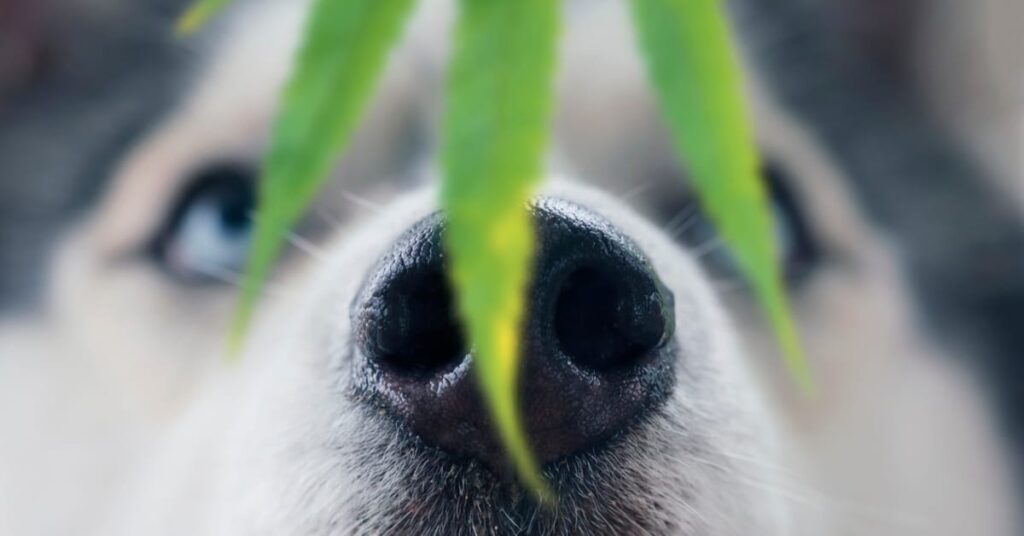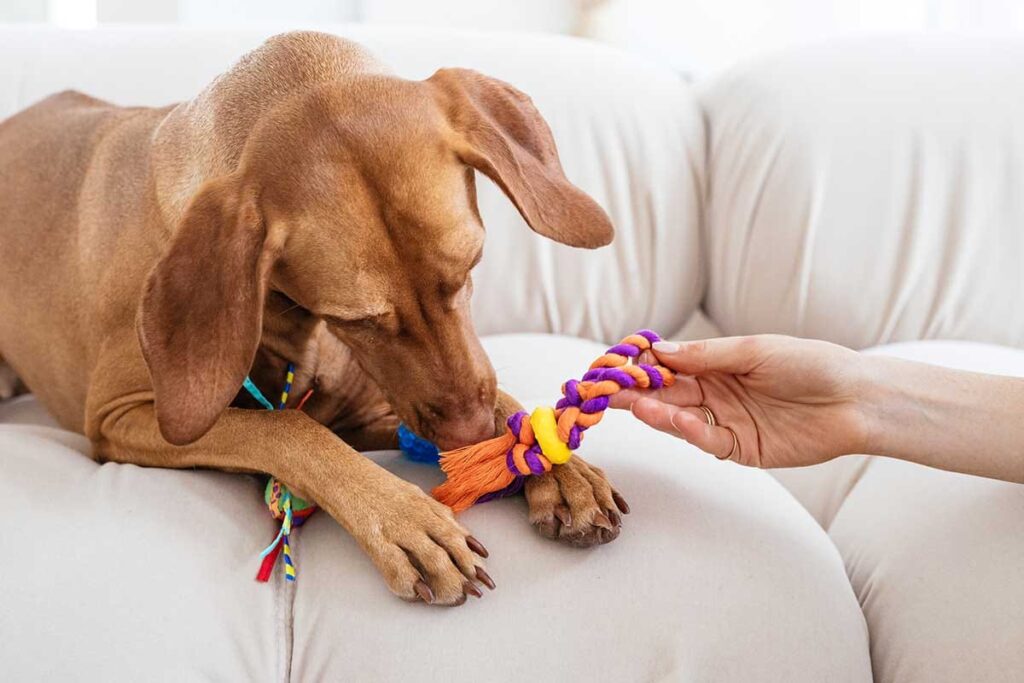Everyone knows that smoking is bad for your health. The effects of secondhand smoke on human health have also been extensively documented.
You might think that if you are a smoker who lives alone or if everyone in your household smokes then you don’t have to worry about the effects of secondhand smoke. But what about your best friend? After all, you want to keep your canine buddy healthy for many years to come.
Whether you’re a smoker or a nonsmoker, if you’re a pet parent, you’ll want to know how secondhand and thirdhand smoke can affect your pet’s health. Let’s look at what we know about the effects of cigarette smoke on your dog.
What is Secondhand and Thirdhand Smoke?

When people inhale the smoke from tobacco products, this is firsthand smoke. They are inhaling it directly into their lungs.
When they breathe the smoke back out and non-smokers or pets in the area inhale their exhaled smoke, that is secondhand smoke. Of course, we now know that firsthand smoke is associated with numerous negative health effects, and we know that secondhand smoke causes many problems for humans.
Thirdhand smoke refers to dust, other smoke residues, and various particulates that are left behind when secondhand smoke lands on various surfaces in the environment. Clothes and pet bedding are left with a yellow color, they smell bad, and they feel grungy.
Thirdhand smoke causes that contamination; but does it affect the health of people or pets who come into contact with it?
What are the Health Risks Associated with Secondhand Smoke for Your Dog?

A study conducted in 1998 by researchers at Colorado State University and published in the American Journal of Epidemiology found that dogs exposed to environmental tobacco smoke were at greater risk for nasal cancer.
Interestingly, the study also found that certain dog breeds were at greater risk. While any type of dog can be at risk if they are exposed to secondhand smoke, this study found that dog breeds with long noses were at an increased risk for nasal cancer as opposed to dog breeds with short and medium-length noses.
This may be related to the ability of the dog’s nasal cavity to trap carcinogens in the smoke. Long-nosed dogs trap more debris in their nasal passages and sinuses than short-nosed dogs.
Short-nosed dogs, however, do not escape the risks associated with secondhand smoke. They are at an increased risk for lung cancer. This is likely due to the fact that their shorter noses don’t as effectively trap the smoke, and the carcinogens then pass straight through to the lungs.
Passive smoking, anthracosis, and cancer

A 2007 study also found that dogs were affected by passive smoking. Whereas previous studies had involved the effects of active smoking by delivering smoke to the animal through a mask or similar device, this study looked specifically at secondhand smoke exposure in domestic dogs.
The researchers found that certain white blood cells were elevated in the dogs exposed to cigarette smoke in homes where the owners smoke at least 20 cigarettes per day.
Additionally, there were changes in the dogs’ airways as a result of exposure to tobacco smoke. They also found anthracosis in immune system cells known as macrophages.
Anthracosis means that there was carbon present in these cells. Anthracosis or smoke residue can cause respiratory problems like allergies, bronchitis, pneumonia, and an increased risk for malignant lymphoma. In humans, anthracosis is often seen in coal miners. It is associated with numerous respiratory diseases including primary lung cancer.
The 2007 study concluded that exposure to secondhand or thirdhand smoke puts pets at a higher risk for numerous cancers including nasal cancer, oral cancer, and lung cancer. Of course, such exposure to smoke may also have long-term effects such as heart disease and other chronic problems just like it does in humans.
How Does Thirdhand Smoke Affect Your Pet’s Health?
The Colorado State University study mentioned above noted that the changes seen in the respiratory tract of pets exposed to secondhand and thirdhand smoke put those pets at an increased for numerous types of cancer.
The University of Massachusetts released a study that also examined the effects of environmental smoke exposure on pets. They found that thirdhand smoke presented a significant risk of oral cancers such as squamous cell carcinoma in pets.
What are Some Other Risks Associated with Nicotine Exposure?

There are several other health problems associated with exposure to smoke or nicotine. Animals can suffer from asthma and secondhand smoke can increase the likelihood your pet could suffer from that health problem. It also increases their risk for allergies, but that’s not the only thing you have to worry about.
There are numerous toxins you have to look out for to keep your pet safe. Now you can add cigarette butts and e-cigarette cartridges to that list. Dogs may eat cigarette butts and could be put at risk for nicotine poisoning. This is also a problem for dogs that may ingest the cartridges from e-cigarettes that contain nicotine products.
Nicotine poisoning is associated with symptoms of:
- vomiting
- diarrhea
- a rapid heartbeat
- rapid respiration rate
- neurological symptoms like tremors, weakness, and seizures
- cardiac arrest and death
What’s a Pet Parent to Do?

You have likely already taken several steps to ensure your best friend has a safe and calming environment at home. It’s clear that it’s also important for your own health and that of your beloved pets to maintain a smoke-free environment. This includes vaping. You want to avoid your pets’ exposure to any of the tobacco products in any form that are available today.
If you do smoke, you’ll want to take it outside to avoid exposing your pets or other family members to the toxic effects of your habit. You should also really consider quitting for your own health.
If your pet does manage to ingest a nicotine product, take him to the veterinarian as quickly as possible. They’ll need to monitor him and respond to any symptoms that threaten his health.
Final Thoughts
Secondhand and thirdhand smoke is as dangerous to your pets as it is to other family members. Of course, firsthand smoke is bad for you too. To prevent significant health problems that can arise from exposure to secondhand smoke or nicotine, it’s best to maintain a smoke-free environment and consider quitting.
As a loving pet parent, you want to ensure you do everything you can to keep your family members happy and healthy. That means making sure their environment is healthy too. They also want you around for a long time to come, so it’s better if everyone in the family is nicotine-free!

